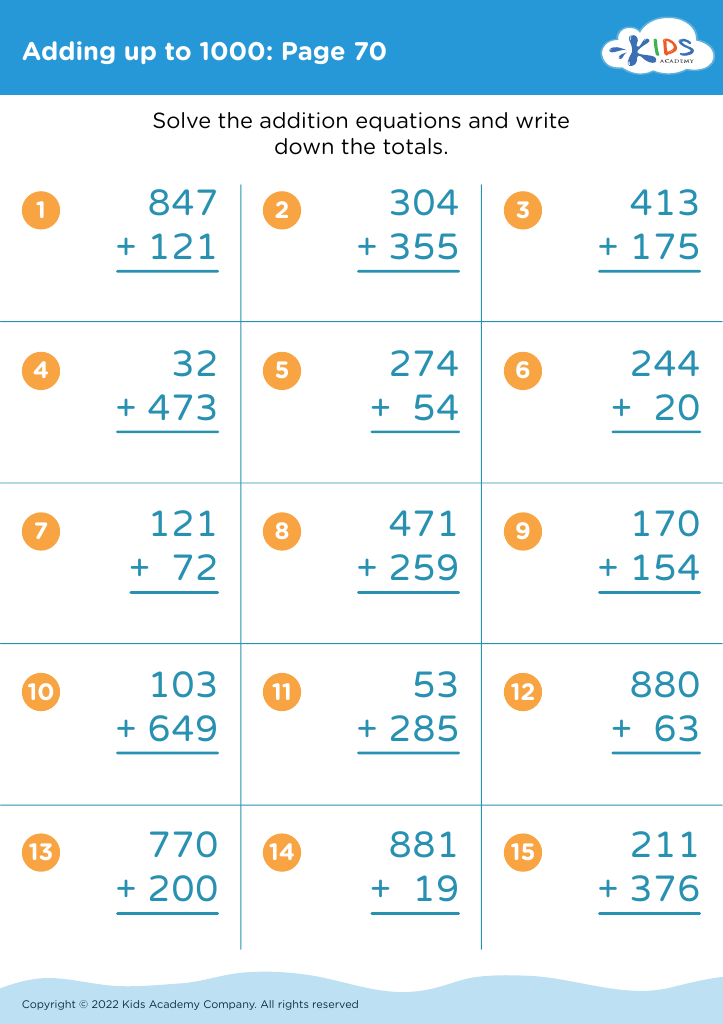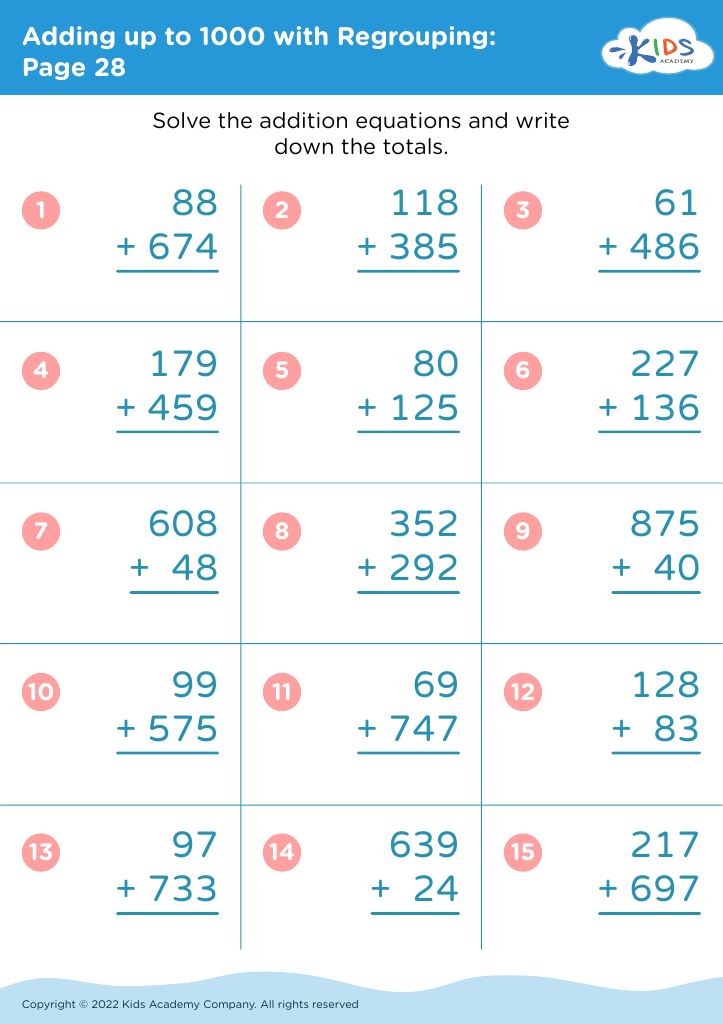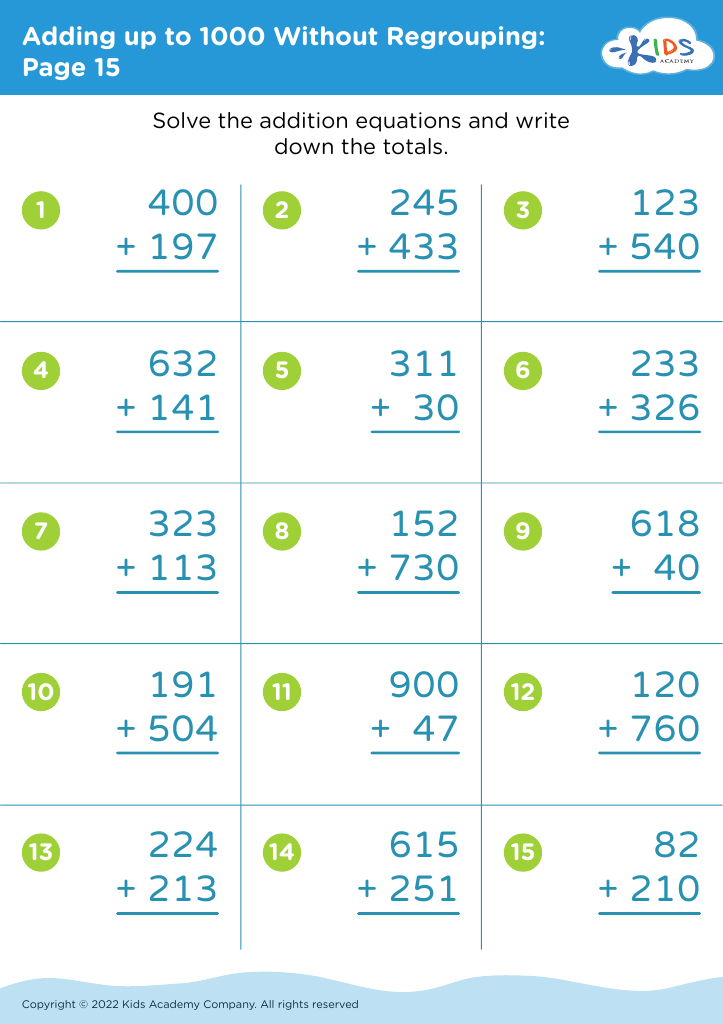Fraction Addition Adding up to 1000 Worksheets for 9-Year-Olds
5 filtered results
-
From - To
Unlock the world of fractions with our engaging "Fraction Addition Adding up to 1000" worksheets designed specifically for 9-year-olds! These interactive and educational resources make learning fun and enhance your child's mathematical skills. Each worksheet provides a variety of fraction addition problems, challenging kids to add and simplify fractions with confidence. Perfect for home or classroom use, our worksheets help reinforce key concepts while keeping students motivated. Watch your child build a solid foundation in math as they practice adding fractions, working their way towards mastering calculations involving whole numbers up to 1000. Explore our collection today and make math exciting!
Understanding fraction addition, especially in the context of a whole like 1000, is crucial for 9-year-olds as it builds foundational mathematical skills and cognitive development. At this age, children are ready to grasp more complex math concepts, which are important both for future academic success and everyday problem-solving.
When children learn to add fractions, they develop critical thinking and reasoning skills. Fraction addition not only enhances their number sense but also encourages accuracy and attention to detail. Learning to work with fractions adds layers of complexity beyond whole numbers, preparing them for subjects relevant to real-world applications, such as cooking, budgeting, and time management.
Moreover, mastering fraction addition fosters a sense of accomplishment and boosts confidence. It indicates to students that they can tackle challenging problems, which reinforces a growth mindset. For parents, being engaged in their child's learning journey, especially in a subject as pivotal as math, enhances communication and deepens the parent-child bond.
Finally, collaboration between parents and teachers to foster a supportive environment crucially impacts a child’s mathematical efficacy and enthusiasm, ultimately shaping them into informed, capable participants in an increasingly numerate society.

















